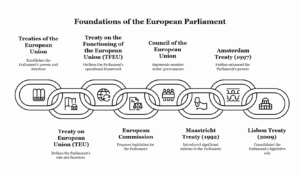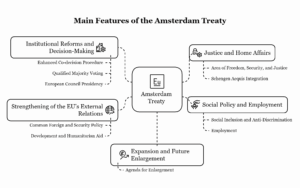-
Continue reading →: Political importance of the multiparty system in India
India’s political system is characterized by a multiparty framework, which allows for a broad spectrum of political ideologies and interests to find expression within the system. The multiparty system is fundamental to the functioning of Indian democracy, reflecting the country’s diversity, pluralism, and federal structure. Since independence, India has witnessed…
-
Continue reading →: Nature and pattern of protest movements in India
Protest movements in India have been a crucial aspect of its democratic landscape, reflecting the diversity of the country and the multiplicity of issues that people face. These movements have played a pivotal role in shaping social, political, and economic change. From colonial times to the present day, protests have…
-
Continue reading →: Electoral reforms
Electoral reforms refer to the deliberate changes made to improve the fairness, transparency, inclusiveness, and efficiency of the electoral process in a democratic country. In India, where democracy functions through regular elections, electoral reforms are critical for ensuring free and fair elections, preventing malpractices, improving voter participation, and strengthening democratic…
-
Continue reading →: Political forces have worked towards reducing the centre’s grip over the states
The relationship between the central government and state governments in India has been a subject of constant tension and negotiation, especially in the post-independence period. While the Indian Constitution established a federal structure, the central government has often been accused of consolidating power at the center, limiting the autonomy of…
-
Continue reading →: Linguistic Minorities and Politics
Linguistic minorities have played a significant role in the shaping of political dynamics in India, given the country’s rich diversity of languages and ethnic groups. The recognition and rights of linguistic minorities have been central to Indian politics, particularly in the context of the demands for linguistic state formation, language-based…
-
Continue reading →: The Marxist framework to analyze state politics
The Marxist framework provides a distinctive lens to understand state politics, emphasizing the role of class struggle, economic relations, and the underlying power structures in shaping political processes. In the Marxist view, the state is not an impartial institution, but rather an instrument of class domination that serves the interests…
-
Continue reading →: Nature of self-determination movements in India
Self-determination movements in India have historically been driven by the desire for greater autonomy, independence, or recognition of specific identities by various groups, often in response to perceived political, cultural, or economic marginalization. These movements have been central to the evolution of Indian politics, particularly in the context of colonial…
-
Continue reading →: Main features of state politics in India since the 1980s
State politics in India since the 1980s have evolved in response to a variety of economic, social, and political factors. This period has seen a transformation in the role and dynamics of state governments, including shifts in power, political alignments, and state policies. Some of the major features of state…
-
Continue reading →: The reasons for the assertion of backward classes in Indian politics
The assertion of backward classes in Indian politics has been one of the most significant and transformative developments in the country’s political and social landscape. Historically marginalized and discriminated against, the backward classes—comprising primarily of the Other Backward Classes (OBCs), Scheduled Castes (SCs), and Scheduled Tribes (STs)—have increasingly demanded greater…
-
Continue reading →: Patterns of politics of ethnic minorities in Indian States
The politics of ethnic minorities in Indian states is an important aspect of India’s complex political landscape. India is home to a vast array of ethnic, linguistic, and religious groups, many of which are concentrated in specific regions and states. The politics of ethnic minorities in India has been shaped…
-
Continue reading →: The reasons for the persistence of Inter-State water disputes
Inter-state water disputes have been a long-standing issue in India, affecting the smooth functioning of federalism and leading to political tensions between various states. These disputes primarily arise from competing demands for water resources, which are critical for irrigation, drinking water, industrial use, and power generation. The persistence of these…
-
Continue reading →: Discuss the impact of globalization on State politics in India
Globalization, the process of increasing interconnectedness and interdependence among nations and regions, has had profound implications for Indian politics, especially at the state level. Since the 1990s, when India embraced economic liberalization and opened its markets to the world, the effects of globalization have been felt across all sectors of…
WELCOME!
Yearly Archive
Categories List
- biodiversity
- Canada
- culture
- democracy
- economy
- European Union
- ignou
- india
- International Relations
- nature
- news
- political-philosophy
- political-science
- sustainability
- Uncategorized
- UPSC
Tag Cloud
agriculture ai business Canada china climate climate-change conservation diversity ethics european-union farming feminism finance gandhi health history ignou india KNOWLEDGE liberty mahatma-gandhi marxism nationalism nonviolence philosophy political-philosophy political-science political-theory politics poverty PSC religion renewable-energy russia socialism sociology sustainability sustainable-agriculture sustainable-living technology terrorism travel UPSC women
Term List
- africa
- agriculture
- ai
- aristotle
- bangladesh
- bjp
- business
- Canada
- china
- christianity
- climate
- climate-change
- conservation
- critical-theory
- digital-marketing
- diversity
- ecology
- elections
- ethics
- europe
- european-union
- faith
- farming
- fascism
- featured
- feminism
- feminist
- finance
- frankfurt-school
- freedom
- fundamentalism
- gandh
- gandhi
- gardening
- gender
- gender-equality
- global-warming
- government
- health
- herbs
- history
- human-rights
- ignou
- india
- inequality
- intellectual-property
- italy
- karl-marx
- KNOWLEDGE
- language
- law
- learning
- lenin
- liberty
- lifestyle
- linguistics
- mahatma-gandhi
- marx
- marxism
- mental-health
- MPS
- multicultural
- multiculturalism
- nationalism
- natural-remedies
- nonviolence
- organic-farming
- patents
- philosophy
- political-philosophy
- political-science
- political-theory
- politics
- pollution
- poverty
- PSC
- recycling
- religion
- renewable-energy
- russia
- socialism
- sociology
- soviet-union
- spirituality
- sustainability
- sustainable-agriculture
- sustainable-living
- teaching
- technology
- terrorism
- trademarks
- travel
- UPSC
- water
- water-conservation
- wellness
- wildlife
- women
- women-empowerment





